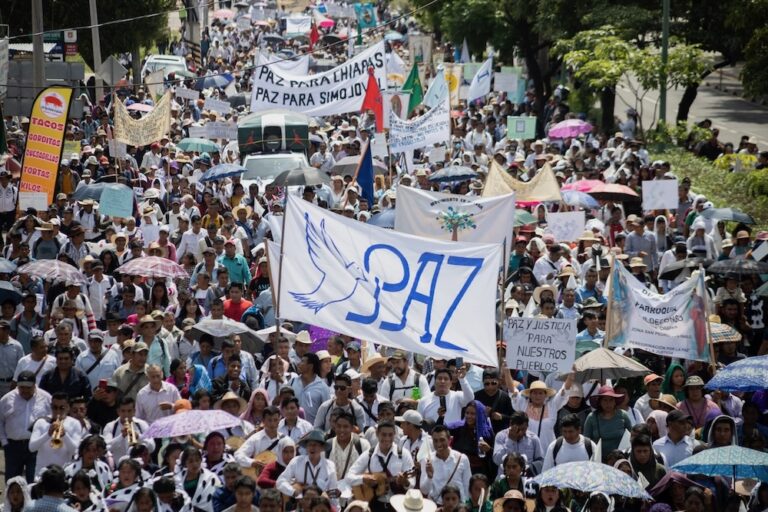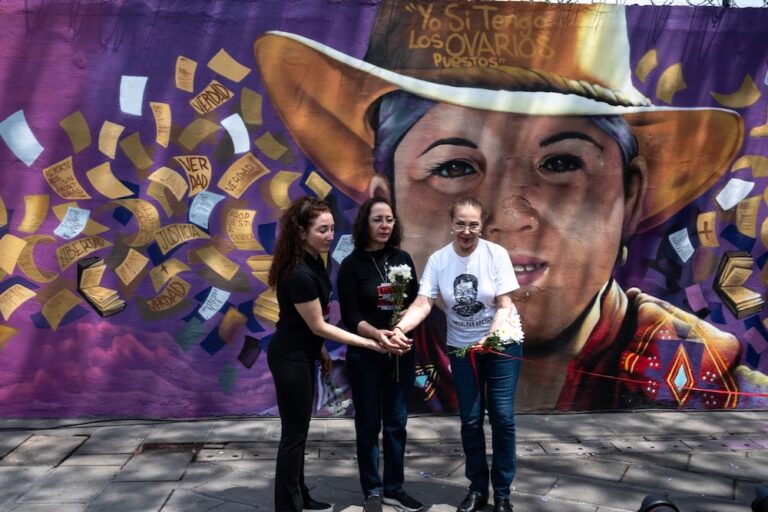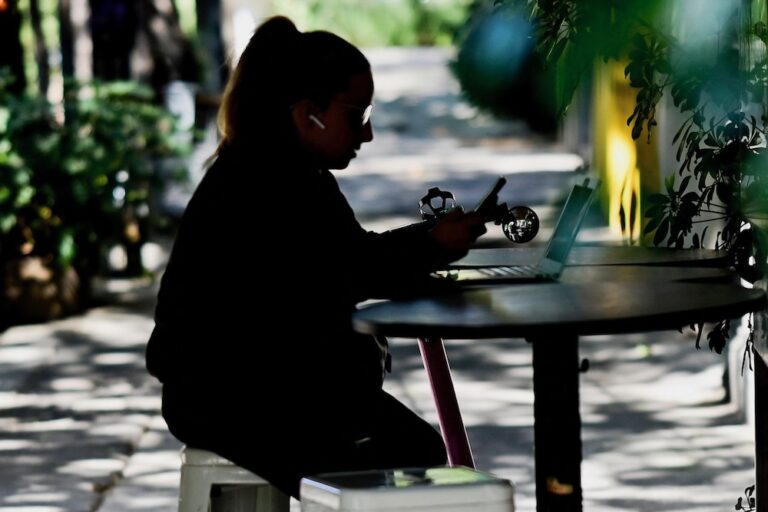HRW says this proposal could effectively prevent Mexican human rights defenders from participating in debates about public policy, challenging abusive laws in the courts, or discussing how to improve rights protections with lawmakers.
This statement was originally published on hrw.org on 11 March 2022.
- Would limit nonprofit organizations’ funding, activities
- Other governments in the Americas have used similar laws to arbitrarily restrict the activity of civil society groups
- International law establishes that governments must guarantee that defenders work without reprisals or unnecessary legal obstacles
A bill being considered by Mexico’s Chamber of Deputies would severely restrict the work of civil society groups in Mexico and violate Mexico’s international legal obligations, Human Rights Watch and Amnesty International said today. Legislators should shelve the proposal.
The bill was introduced by a legislator from President Andrés Manuel López Obrador’s party, Morena, which holds a majority in both houses of Congress. It would prohibit nonprofit organizations from trying to influence or change laws either through lobbying or through strategic litigation if they receive funding, directly or indirectly, from foreign governments or corporations. The government would have the authority to revoke the nonprofit status of organizations that violate the prohibition.
“This proposal could effectively prevent Mexican human rights defenders from participating in debates about public policy, challenging abusive laws in the courts, or discussing how to improve rights protections with lawmakers,” said Tamara Taraciuk Broner, acting Americas director at Human Rights Watch. “This is the kind of attempt to expand executive power at the expense of fundamental freedoms we have seen from autocratic leaders in countries ranging from Russia, to Nicaragua, to El Salvador.”
“Civil society organizations and human rights defenders who speak out against unjust laws and government practices, challenge those in power and demand justice, are being increasingly targeted across the region,” said Erika Guevara-Rosas, Americas director at Amnesty International. “For decades, civil society organizations have played a key role in advancing human rights in Mexico by pushing Congress for legislative changes and by challenging abusive laws in the courts. The proposed bill reflects the broader political trend in which toxic narratives demonize NGOs with the intention to silence critical views and inhibit the ability of human rights defenders to scrutinize state institutions.”
President López Obrador regularly attacks human rights, environmental, and transparency groups. He often publicly singles out specific people and organizations in his morning news conferences, baselessly accusing them of being part of an opposition plot to overthrow his government. He has also said that international donors and aid agencies should stop funding Mexican civil society groups out of respect for “non-interventionism.”
Mexican groups have spoken out publicly against projects and proposals promoted by López Obrador and his party that raise human rights concerns. Notable examples include a bill that would have effectively legalized arbitrary detention and allowed the use of evidence obtained through torture, and a railway project that opponents say would harm the environment and Indigenous communities. In some cases, groups have taken legal action to halt or delay these initiatives.
The introduction to the new bill, which outlines its motives, recognizes that civil society groups have impeded or blocked some government proposals and accuses those who have done so of “coup plotting,” “interventionism,” and “violat[ing] our national sovereignty.”
Human Rights Watch and Amnesty International have documented how other governments have used similar laws to arbitrarily restrict the activity of civil society groups.
In Nicaragua, the government has cancelled the registration of dozens of human rights and aid organizations, such as Oxfam, using a law requiring any organization that received foreign funding to register as a “foreign agent” and then prohibiting them from interfering in “internal politics.”
In Ecuador, during Rafael Correa’s presidency, the government issued a decree giving it broad powers to regulate or dissolve civil society groups accused of “political interference.” It used these powers to expel a number of international organizations and dissolve an Ecuadorian environmental group after some of its members protested oil drilling in the Amazon.
In Venezuela, the government has passed a series of laws restricting the activities of civil society and has criminally prosecuted groups that receive foreign funding, accusing them of “treason” and “crimes against national sovereignty.”
In Guatemala, a law came into effect in June 2021 empowering the government to arbitrarily shutter any civil society group it considers to have violated public order.
In El Salvador, the government proposed a “foreign agents” law in November 2021 that would have barred groups receiving international funding from “political activities.” After objections from human rights groups, the law did not move forward, but remains pending.
Outside of Latin America and the Caribbean, authorities in places like Russia, Egypt, and China have passed draconian laws to restrict the work of human rights defenders and, in some cases, have prosecuted and fined human rights groups for engaging in “political activity.”
Since taking office in 2018, President López Obrador has eliminated the independent funding that supported the program that protects journalists and human rights defenders whose lives have been threatened. He has also vilified and intimidated independent journalists, publicly accusing them of lying, calling them “criminals,” and publicly sharing sensitive personal information about a journalist critical of him.
He has attempted to weaponize the justice system against his opponents, pushing for a reform to assert control over the courts, holding a referendum on whether to put former opposition party presidents on trial, and calling for a judge who ruled against him to be investigated. And he has attempted to neutralize or proposed eliminating independent institutions that serve as checks on presidential power, such as the independent access to information agency.
Under international law, as part of their duty to protect and promote human rights, governments must ensure that human rights defenders are allowed to pursue their activities without reprisals, threats, intimidation, harassment, discrimination, or unnecessary legal obstacles. Both the United Nations and the Inter-American Commission on Human Rights have recognized that this includes allowing human rights organizations to solicit, receive, and use funding from foreign governmental and nongovernmental organizations and to benefit from tax exemptions available to other nonprofit organizations.
The UN Declaration on Human Rights Defenders recognizes that human rights defenders have the right to propose legal and policy changes, to provide legal representation in defense of human rights, and to make formal complaints to government bodies and have those complaints reviewed.



